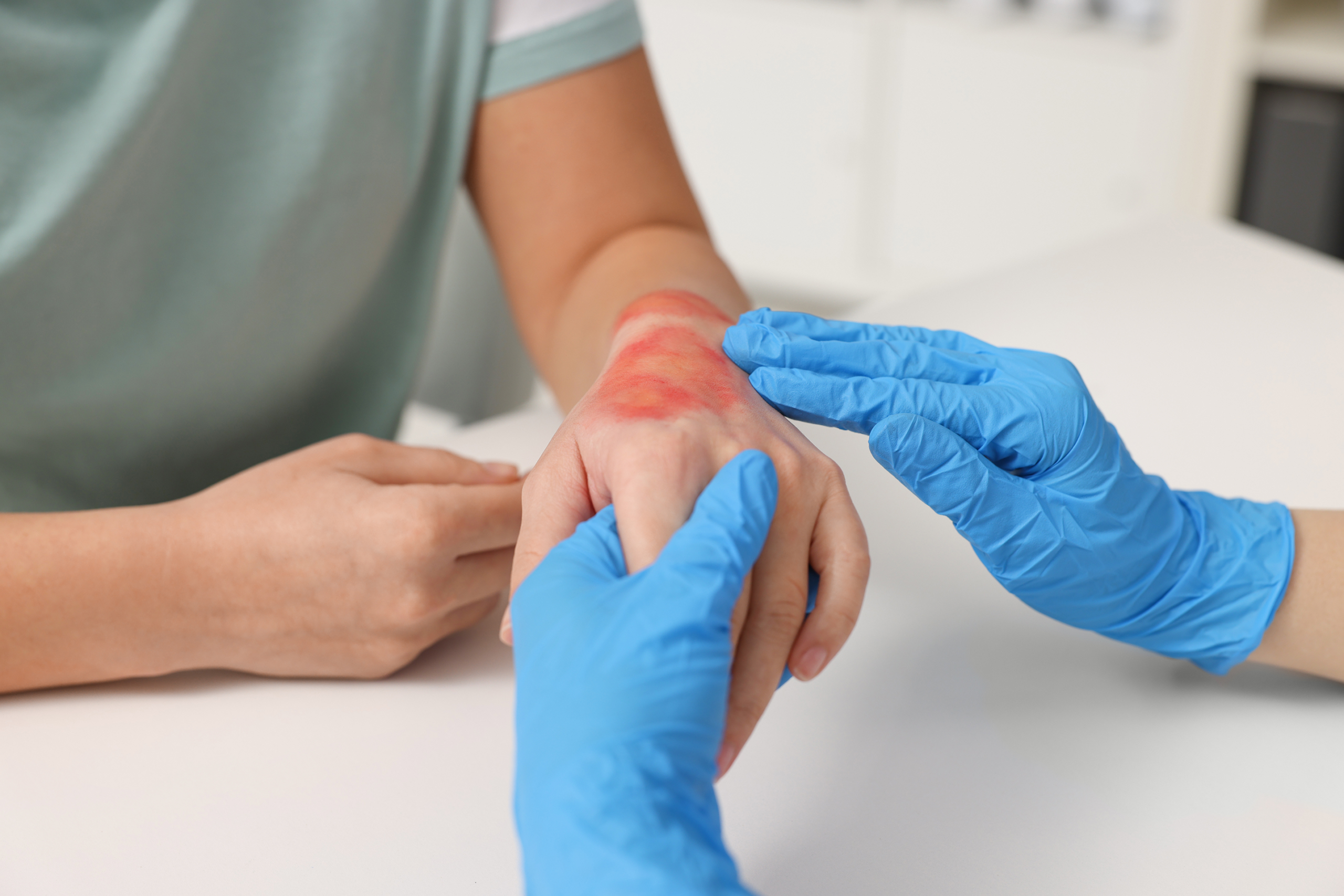Proper wound care is essential for maintaining overall health and preventing complications that may arise from injuries, chronic conditions, or surgical procedures. A wound care doctor plays a vital role in diagnosing, treating, and managing all types of wounds while addressing the underlying health factors that affect healing. Access to a skilled wound care specialist can make the difference between prolonged recovery and effective, timely healing.
What is a Wound Care Doctor?
A wound care doctor is a medical professional who specializes in the assessment, treatment, and management of various types of wounds. Unlike general practitioners, these specialists focus exclusively on ensuring optimal healing outcomes, particularly for chronic, complex, or high-risk wounds. Common wounds managed by these doctors include diabetic ulcers, pressure injuries, venous ulcers, post-surgical wounds, burns, and traumatic injuries.
A wound care doctor evaluates both the physical wound and the patient’s overall health. This approach includes identifying factors that may delay healing, such as diabetes, vascular insufficiencies, immune system deficiencies, and nutritional issues. By treating the patient as a whole, wound care doctors provide targeted solutions that improve long-term outcomes.
Why Professional Wound Care Matters
Many wounds may seem minor initially but can lead to serious complications if left untreated or improperly managed. A wound care doctor ensures proper assessment, timely treatment, and preventive measures to reduce risks such as infection, tissue damage, or chronic wound development.
Proper wound care extends beyond simply dressing a wound. It involves understanding underlying causes, monitoring healing progress, and making adjustments to treatment plans when necessary. Chronic wounds, in particular, require specialized attention as they can significantly impact mobility, independence, and quality of life.
Patients under the care of a wound care doctor benefit from faster recovery, reduced risk of recurrence, and comprehensive support that addresses both physical and emotional well-being. This holistic approach improves confidence and empowers patients to actively participate in their healing journey.
Services Provided by a Wound Care Doctor
A wound care doctor offers a range of specialized services designed to manage both acute and chronic wounds effectively. Key services include:
Chronic Wound Management: Chronic wounds, such as diabetic foot ulcers, venous ulcers, and pressure injuries, require continuous monitoring and advanced therapies. Wound care doctors develop individualized treatment plans that consider the patient’s medical history, comorbidities, and lifestyle factors to promote optimal healing.
Acute Wound Treatment: Acute wounds, including post-surgical injuries, burns, and traumatic wounds, require prompt and precise interventions. A wound care doctor ensures proper cleaning, dressing, and follow-up care to prevent infection and support rapid recovery.
Advanced Therapies: Modern wound care involves technologies that improve healing outcomes. A wound care doctor may use:
- Ultrasonic Debridement: A minimally invasive technique that removes dead tissue and promotes faster healing.
- Negative Pressure Wound Therapy (NPWT): A therapy that applies controlled suction to wounds, encouraging tissue regeneration and reducing the risk of infection.
- Bioactive and Modern Dressings: Specialized materials that maintain an ideal healing environment and reduce discomfort.
Patient Education and Preventive Care: A wound care doctor also focuses on teaching patients how to manage wounds at home, recognize early warning signs, and implement preventive strategies to avoid recurrent injuries.
Home Care Guidance: Some patients require ongoing care outside the clinic. Wound care doctors provide detailed instructions and support to ensure safe and effective management at home, particularly for those with chronic conditions or mobility limitations.
Choosing the Right Wound Care Doctor
Selecting a qualified wound care doctor involves considering several key factors:
- Expertise and Training: Look for doctors who are extensively trained in advanced wound care techniques and have experience managing complex wounds.
- Patient-Centered Approach: Compassionate care that prioritizes comfort, dignity, and emotional support is essential for effective healing.
- Accessibility and Affordability: Clinics that offer reasonable costs, community programs, or financial assistance ensure that wound care is accessible to a wider population.
- Holistic and Preventive Care: The best wound care doctors address not only the wound but also underlying health conditions and preventive measures to reduce recurrence.
A reputable wound care doctor combines clinical knowledge with a nurturing approach, ensuring patients feel supported and confident throughout their treatment.
How Wound Care Doctors in Manila Stand Out
Manila offers specialized clinics that provide world-class wound care services. A wound care doctor in these clinics combines modern technology with a deep understanding of patient needs. Services typically include advanced therapies like ultrasonic debridement and negative pressure wound therapy, delivered by a highly skilled medical team.
Clinics prioritize patient comfort and emotional support, offering guidance for home care and preventive practices. These specialists understand the challenges faced by patients, particularly those with chronic conditions or limited access to healthcare, and work to provide affordable, high-quality care for all.
Patient Experience
A typical patient journey with a wound care doctor begins with a thorough assessment, including medical history review and wound evaluation. The doctor then develops a personalized treatment plan that addresses both the wound and contributing health factors.
Treatment is carried out with attention to comfort and dignity, ensuring patients feel informed and empowered. Follow-up appointments monitor progress, make necessary adjustments, and provide education on wound management.
Patients often report increased confidence and peace of mind knowing their care is managed by specialists who understand the complexities of wound healing. Community outreach and educational programs further strengthen patient trust and engagement.
Preventive Tips from Wound Care Doctors
Preventing wounds or complications starts with proper care and early recognition. Wound care doctors recommend several strategies:
- Maintain clean and dry wounds to prevent infection.
- Monitor for signs of infection such as redness, swelling, or unusual discharge.
- Implement lifestyle adjustments like improved nutrition, proper footwear, and disease management for conditions like diabetes.
- Seek professional attention promptly if a wound is slow to heal, deep, or shows signs of infection.
Following these guidelines can significantly reduce recovery time, prevent complications, and improve overall well-being.
Takeaway
A wound care doctor provides more than medical treatment—they deliver comprehensive, patient-centered care that improves healing outcomes and quality of life. By combining advanced technology, expertise, and a compassionate approach, these specialists address both physical wounds and the broader needs of patients. Consulting a skilled wound care doctor ensures timely, effective treatment while empowering patients with knowledge, preventive strategies, and emotional support. Accessing professional wound care is a vital step toward maintaining health and ensuring a smooth recovery from any wound.
Frequently Asked Questions (FAQ)
Who should see a wound care doctor?
Anyone with chronic, non-healing wounds, post-surgical injuries, diabetic ulcers, pressure sores, burns, or traumatic wounds should consult a wound care doctor.
How do I know if my wound requires specialist attention?
Wounds that do not heal within a few days, show signs of infection, or recur frequently should be evaluated by a wound care doctor.
What advanced therapies are available?
A wound care doctor may provide ultrasonic debridement, negative pressure wound therapy, bioactive dressings, and other modern treatments.
Can wound care doctors guide home treatment?
Yes. Wound care doctors provide instructions and support for safe, effective wound management at home.
How can I access affordable wound care?
Clinics offering community programs, outreach initiatives, and flexible pricing make professional wound care accessible to more patients.










